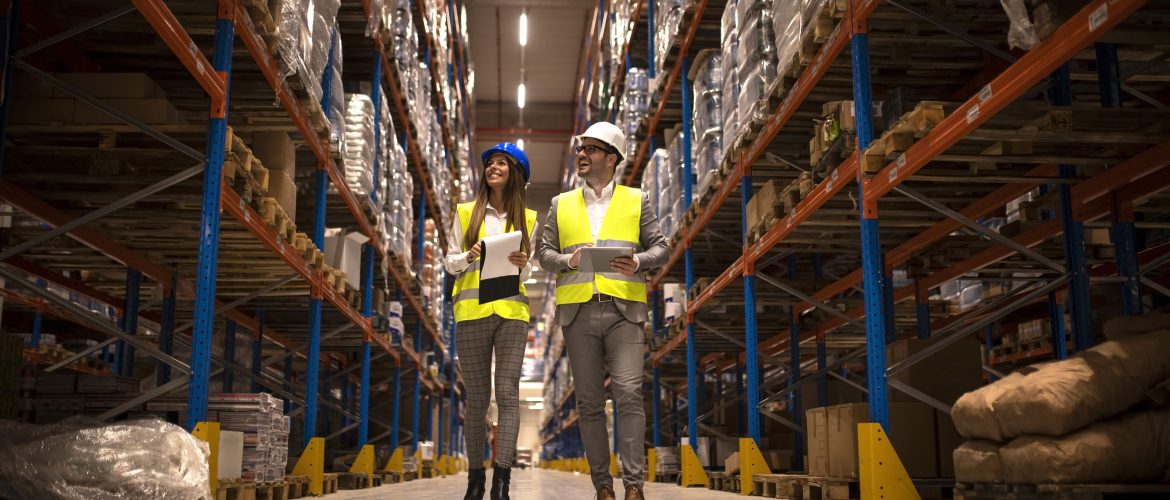If there is one thing that the world can readily agree on about the Middle East is that a large section of the population here has strong spending power and high disposable income. The lifestyles that some of the high-income groups enjoy in the Middle East are nothing less than enviable. Luxury cars to exotic animals branded clothes and accessories, and world-class premium products are commonplace in most of the countries in this region. No wonder the retail industry has grown leaps and bounds in the last two decades and it continues to flourish at an exponential rate. The alpha spenders here meet their needs from various retail outlets, ranging from hypermarkets to humble next-door shops.
And the retail industry is staring at an exciting future in the GCC region as it is expected to grow to $308 billion by 2023. The government support, business-friendly environment, reduced and subsidized taxes, and a hyper-active logistics industry have ensured that the retail sector accelerates its growth the becomes one of the strongest contributors to the economy in this region.
The changing dynamics of the retail sector in the Middle East
The last few years have seen the retailers and manufacturers operate in a constantly changing retail environment, all thanks to consumer maturity and the emergence of a new, government-backed, business model. The emergency of digital technology in the retail industry and the government’s support in creating a wealthier digital support system have contributed to these changing dynamics of the industry. The role of digital technology has especially become critical since the pandemic when the world shifted its operations to digital mediums to continue providing the world.
The emergence of e-commerce, which is also spearing its head in the Middle East region in a big way, has posed stiff competition to the traditional brick-and-mortar business model of the retail sector. The emergency of e-commerce and similar other online shopping avenues means that the retail industry must brace itself to make a huge shift by providing easy online shopping options to its customers. And this shift is evidently clear in the GCC region. If statistics are to be believed, e-retail in this region witnessed a huge rise in online sales, and it is expected to comprise almost 17 percent of retail sales by 2025. This is how rapidly the dynamics of the retail sector are changing.
While the demands from customers are changing, so are the retailers. There is more focus on providing a great in-person shopping experience and that can be seen in several instances as brands like Adidas and others have created interesting shopping stores for their customers where they cannot just shop, but also indulge in other interactive activities.
Even though retail stores are doing whatever they can in their capacity to woo the customers, where they really need to pull up their socks at this point in time is with the e-commerce industry that has risen exponentially in the last few years in the GCC region. From a $ 5 billion industry in 2015 to a whopping $ 24 billion today, the rise has given the retail industry a new lease of life with retailers now providing newer ways of shopping. Newer services such as buying online and collecting from the store have significantly increased the reach and revenue in this sector.
The logistics industry is the key to the GCC keeping up with the rise of retail
The rise of the e-commerce industry has increased the demand for better logistics, and supply chain management and created an atmosphere where items are supplied and transported more efficiently. While the e-commerce industry has created a great space for consumers, it has also increased the competition and customer expectations. With the consumers now looking at faster and more efficient deliveries and multiple meeting points, the logistics industry will have to come to the fore and support this ecosystem. The GCC region, which is home to some of the fastest-growing shipping companies and logistics companies will depend heavily on this sector for better, efficient, faster, and regular movement of goods.
In a way, the rise of the retail sector is good news for the logistics industry in the region that will now have continuous business potential to capitalize on. Not just that, with the government now looking to invest more in the e-commerce industry and pushing it as one of the pillars of economic diversification, the logistics industry will find ample avenues to scale up its operations. This, definitely means a new phase is beginning in the GCC region giving shipping companies and logistics companies a lot of scopes to ensure they increase their contribution toward their respective national economies.
Be it freight movement, warehousing services, local transportation, or door-to-door deliveries, all these services will need to be overhauled to keep up with the pace at which the e-commerce and retail sectors are developing. The shipping companies and logistics companies, that have hitherto been the backbone of the economic diversification movement, seem to be on the cusp of another revolutionary wave that will set a new tone for how businesses and consumers alike ride the consumerism wave.










